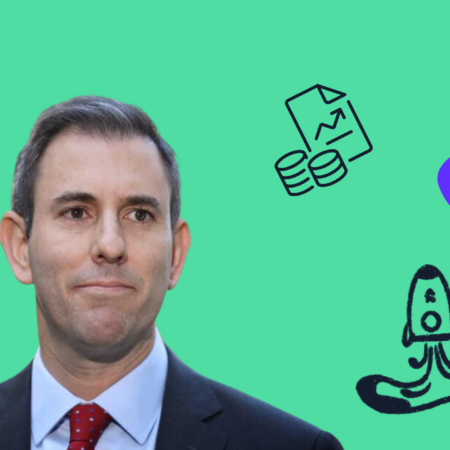Accounting for Doctors: Mastering Medical Services Financial Management
What’s up, doc! If you feel like you’re drowning in a sea of numbers when you should be focusing on patient care, you’re not alone. For many medical professionals, balancing the books can be as exciting as having a tooth extracted without any painkillers. But one thing I can assure you: mastering your medical practice’s financial management isn’t just about keeping the taxman happy—it is about building a very successful operation that lets you do what you know best: helping people.
So, grab a cuppa and let’s dive into the world of specialised accounting for medical professionals. We are going to address its significance, discuss typical financial issues, and come up with ways of ensuring your clinic remains financially healthy. Ready? Let’s get started!
Key Highlights:
- The Importance of Specialised Accounting for Doctors: Tailored accounting helps medical professionals navigate industry-specific tax strategies, optimise business structures, manage cash flow, and focus on patient care instead of financial complexities.
- Revenue Cycle Management (RCM) for Cash Flow: Effective RCM ensures timely payments, reduces billing errors, and improves financial stability, allowing doctors to maximise income while enhancing patient satisfaction.
- Long-Term Financial Planning: From tax deductions and wealth management to retirement and estate planning, mastering financial strategies ensures sustainable practice growth and personal financial security.
Table of Contents
Why Specialised Accounting is Essential for Doctors?
Consider this: every minute you spend poring over spreadsheets is a minute you’re not spending with patients or upgrading your skills. As the folks at Marsh Partners point out, “Although doctors can complete accounting tasks with their abilities, they need time to focus on their professional work to help more people.”
Specialised accounting for medical practices isn’t just about number-crunching. It’s about:
1. Industry-Specific Tax Strategies: The Australian tax system is complex enough, but throw in the unique aspects of running a medical practice, and you’ve got yourself a real head-scratcher. A specialised accountant can help you navigate these murky waters.
2. Optimised Business Structure: Should you operate as a sole trader, partnership, or company? The right structure can make a world of difference to your tax obligations and asset protection.
3. Cash Flow Management: Because let’s face it, those fancy new diagnostic machines don’t pay for themselves.
4. Financial Reporting: Keeping track of your financial health is as important as monitoring your patients’ vitals.
Five Financial Challenges Faced by Doctors in Practice Management
According to the Azure Group, here are some common financial pitfalls that many doctors stumble into:
1. Neglecting Proper Budgeting: You wouldn’t perform surgery without a plan, so why run your practice without a budget? Many doctors focus primarily on their practice and patient care, often overlooking the importance of detailed budgeting. Without a proper budget, it’s easy to overspend or fail to allocate funds.
2. Inadequate Tax Planning: Tax planning can be complex, and without specialised knowledge, doctors may miss out on valuable deductions and credits, resulting in higher tax liabilities.
3. Failing to Separate Personal and Business Finances: Mixing personal and business finances is a recipe for confusion (and potential legal headaches).
4. Overlooking Retirement Planning: Busy schedules and financial concerns often push retirement planning to the back burner, leaving doctors unprepared for their future.
5. Ignoring Cash Flow Management: Many doctors focus on revenue generation but fail to pay attention to cash flow. Because cash flow is the lifeblood of any business, including your practice.
Revenue Cycle Management: Maximising Income for Medical Professionals
Are you familiar with the phrase Revenue Cycle Management (RCM)? It’s not just another boring acronym—it’s a crucial part of running a successful medical practice. According to Healthcare Tech Outlook Australia, RCM “involves the process of tracking and managing the financial interactions between patients, providers, hospitals, and payers.”
Put simply, it’s all about making sure you get paid for the work you do. And let’s be honest, that’s pretty important, right?
The Importance of Revenue Cycle Optimisation in Healthcare
Optimising your revenue cycle isn’t just about fattening your wallet (although that’s a nice side effect). It’s about achieving financial stability, improving efficiency, and ultimately providing better patient care. As Stripe points out, effective RCM can lead to:
– Improved cash flow
– Reduced administrative burden
– Better patient satisfaction (because nobody likes billing surprises)
– More accurate financial forecasting
Effective Billing and Collection Strategies to Improve Cash Flow
Do you wish to maintain a strong cash inflow in your practice akin to the well-being of your patients? Here are three strategies to consider:
1. Implement EHR and practice management software: Can streamline billing processes. Welcome to the 21st century, where technology can make your life easier
2. Minimise errors: Regularly review and audit billing processes to minimise errors and avoid claim rejections.
3. Ensure timely collections: Go after those payments like a nurse after a patient by developing a clear payment policy and following up promptly
Tax Deduction Strategies for Medical Practices
Ah, taxes. The word alone is enough to make most people break out in a cold sweat. But for medical professionals, effective tax planning isn’t just about minimising your tax bill—it’s about maintaining financial health, ensuring compliance, and taking advantage of available deductions and credits.
Here are some key areas to focus on:
1. Understanding Tax Obligations: Knowledge is power, especially when it comes to taxes.
2. Tax Deductions and Credits: Are you claiming everything you’re entitled to?
3. Specialised Tax Advisor: Because sometimes, you need to call in the experts.
Some of Usual Tax Deductions for Doctors
Did you know that as a doctor in Australia, you might be eligible for some specific tax deductions? Here’s a quick rundown:
– Professional memberships and subscriptions
– Medical equipment and supplies
– Continuing professional development expenses
– Home office expenses (if applicable)
– Vehicle expenses for work-related travel
– Professional indemnity insurance
Remember, though, that tax laws can change, and what’s deductible one year might not be the next. It’s always best to consult with a tax professional to ensure you’re claiming correctly.

Mastering Long-Term Financial Planning and Wealth Management for Doctors
Okay, let’s take a step back and look at the bigger picture. To manage an efficient medical practice is not only a question of daily processes; it is also a question of developing a viable financial model for future growth. Here’s a step-by-step guide to get you started:
1. Budgeting and Forecasting: Because crystal balls are in short supply, but spreadsheets aren’t.
2. Building a Financial Reserve: For those rainy days (or global pandemics).
3. Retirement Planning for Medical Professionals: Because even superheroes need to hang up their capes eventually.
4. Estate Planning: It’s never too early to think about your legacy.
Investment Strategies in Wealth Management for Lasting Success
Now, let’s talk about growing your wealth. Here are some key points to consider:
1. Set Clear Financial Goals: What does success look like to you?
2. Develop a Solid Financial Plan: A roadmap to your financial dreams.
3. Diversification and Asset Allocation: Don’t put all your eggs in one basket.
4. Long-Term Focus and Patience: Rome wasn’t built in a day, and neither is wealth.
5. Understand Risk and Risk Tolerance: How much rollercoaster can your stomach handle?
6. Regular Monitoring and Portfolio Rebalancing: Keep your investments in check.
7. Tax Efficiency: Because it’s not just about what you earn but what you keep.
8. Stay Disciplined and Avoid Emotional Decisions: The stock market and the pokies have one thing in common – emotions can lead to bad decisions.
9. Seek Professional Advice: This is where firms like Future Advisory come in. We’re here to help you navigate the complex world of finance and investment, tailored specifically to medical professionals like you.

There you have it, Docs—a whirlwind tour of financial management for medical professionals. From niche bookkeeping to taxation approaches, from optimising revenue collection cycles to lifetime investment strategies, we’ve covered it all.
Remember, just as you wouldn’t expect your patients to perform their own surgery, you shouldn’t have to navigate the complex world of medical finance alone. That’s why there are such things as medical finance consultants. We’re here to help you focus on what you do best—caring for your patients—while ensuring your practice remains financially healthy.
So, what’s your next step in mastering your medical practice’s finances? Whether it’s implementing a new billing system, reviewing your tax strategy, or planning for retirement, there’s no time like the present to get started. After all, a financially healthy practice means a healthier you—and healthier patients.
Got questions? Need more specific advice? Don’t hesitate to reach out.














